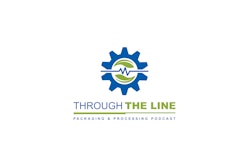Corporate responsibility and sustainability were key themes at this year’s Anuga FoodTec in Cologne, Germany. Rocol, a well-known name in lubricants and specialty fluids, took the opportunity to announce its abandonment of per- and polyfluoroalkyl substances (PFAS) in key lubricant products aimed at the food industry.
As of this week, all formulations within Rocol’s line of Foodlube food-grade lubricants are now made without PFAS chemicals.
“Our new formulations will prevent more than 425 kg of PFAS chemicals entering the environment every year, lowering the environmental footprint of not only our business, but of our customers too, and without compromising on product quality,” says Jess Myers, a scientist for Rocol.
PFAS has been a popular topic of discussion—and one of considerable concern—as a group of substances widely considered harmful to the environment. These “forever chemicals” have been widely used in industry and consumer products since the 1940s. Their carbon-fluorine bond makes them extremely persistent in the environment, but exposure to them has also been found to have a variety of adverse health effects.
A universal PFAS restriction proposal is currently being debated in the European Union, and the European Commission is expected to respond to the proposals later this year. In the U.S., this year is expected to see widening legislation at state levels.
Looking to get ahead of any bans and responding to an increasing number of inquiries from customers, Rocol decided to eliminate any use of PFAS in its food-grade lubricants. As food-grade formulations, the concern was not with immediate health effects but rather their persistence in the environment, according to Myers.
The most used PFAS in Rocol’s products was polytetrafluoroethylene (PTFE), typically known by its trade name Teflon. “They were never hugely dangerous to our health here and now, but we were unsure of the implications of them in 10, 20, 50, a hundred years’ time,” she says. “That’s why we removed it from our formulations.”
The fact that the European Chemicals Agency has proposed a ban on all PFAS chemicals is huge, Myers says, because that’s a ban of more than 10,000 chemicals. “They’ve never done anything like this before,” she says. “All the restrictions previously have been a small group of chemicals.”
It’s a possible ban that has many customers worried about the sustainability of their own processes. “It’s become a pretty hot topic,” Myers says. “A lot of customers were asking us about PFAS and if it was in some of our formulations, and they kind of drove this change for us.”
The new formulations
PTFE certainly had benefits to performance when they were first introduced to Rocol’s Foodlube products, but those formulations have come a long way since then, with different elements added along the way to enhance performance—to the point where Myers contends it wasn’t that difficult to reformulate effectively without PFAS chemicals.
“Initially, when we first started, there were a lot of concerns that removing the PFAS components could be quite detrimental to some of the products. So I think the biggest challenge for us internally was trying to prove that there has been no major effect to the product,” she says. “As a result, we did extensive testing. Every single formulation underwent every single bit of in-house testing we could do related to that product compared to the PFAS-containing formulations. We proved that there was no difference in performance in production, and then we carried out customer trials with some key customers to check that there was going to be no difference with performance in use.”
Rocol confirmed that the Foodlube packaging is also PFAS-free. This is not a change, Myers clarifies, also noting that Detex branding on those packages indicates that plastic components of the package are X-ray and metal detectable. “So, say the cap of your aerosol fell into the food line while you were putting grease on something, it could be detected so it wouldn’t go into any food source,” she says.





















